Top Down Puzzle/Combat Game Design - Fire Sword - Game Development Project
- bvieriu246
- Feb 25, 2022
- 2 min read
Updated: Nov 15, 2024
On this module we were assigned to make a pitch for a game (and a game to show in said pitch) in groups of five game design students.
I worked on the tutorial level, character design (for temporary place-holder models) and on some level assets.
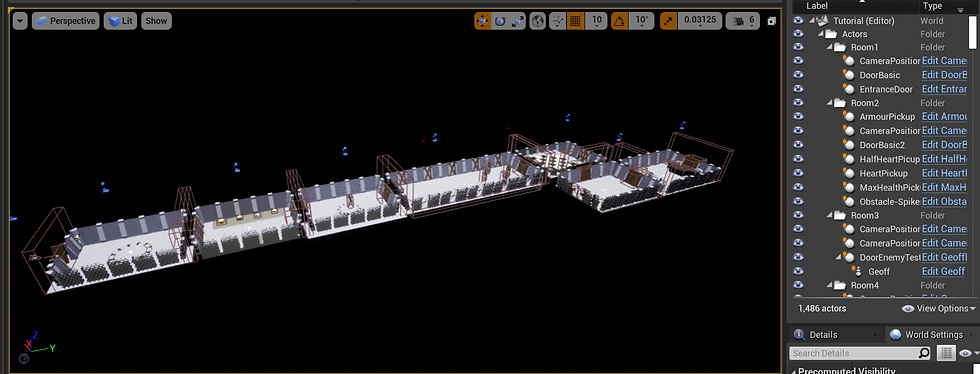
Image of the whole Tutorial Level, I tried my best to organize the different objects into their special folders.
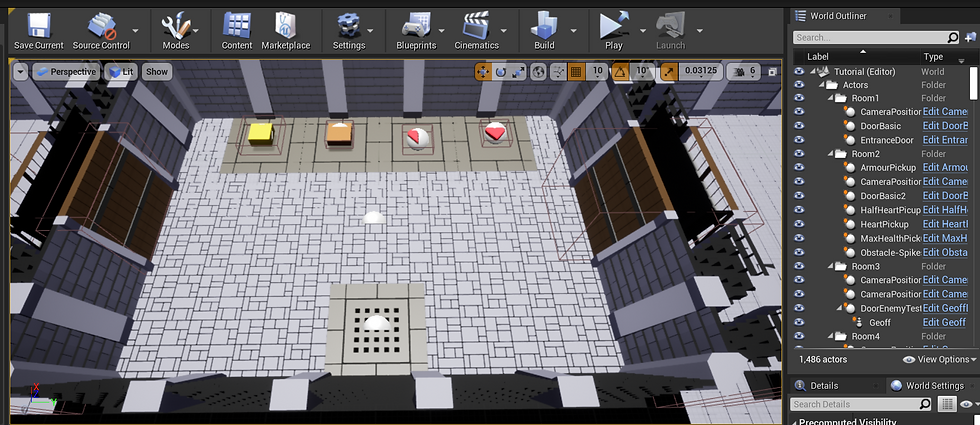
Image of the second room, it has the purpose to show off the different healing items my colleagues implemented using the spike asset I implemented, also the doors themselves are actors that open when you go next to them and close after you enter the other room (at least in this room).

The image of the said spike, I made it with every designer in mind, you can disable/enable cycles, if the spikes damage enemies, their uptimes and downtimes and the amount of damage, they also have special functions for use in puzzle rooms. (like SpikeUp/SpikeDown that override the spikes).
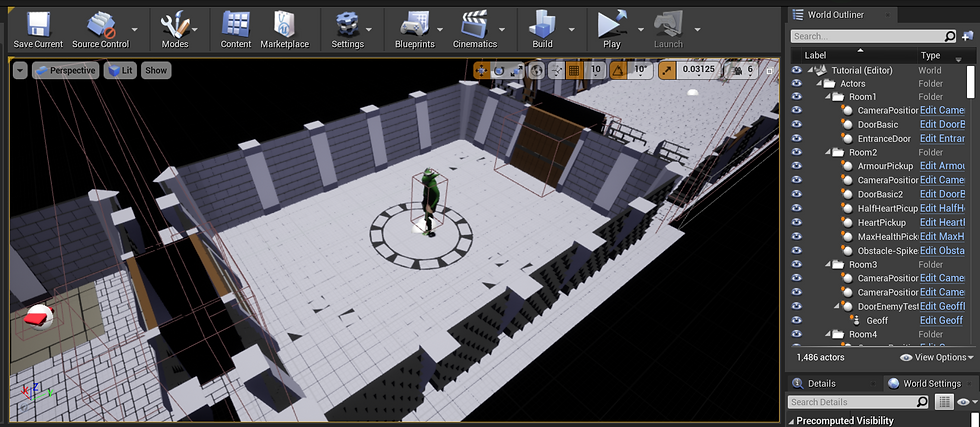
The next room is made for the player to test their combat abilities against a dummy character. (when the player hits the said enemy dummy, they "die" and open the door).

After the dummy room, the player needs to actually test their combat abilities on enemies, so the room has four of them which need to be defeated for you to proceed.
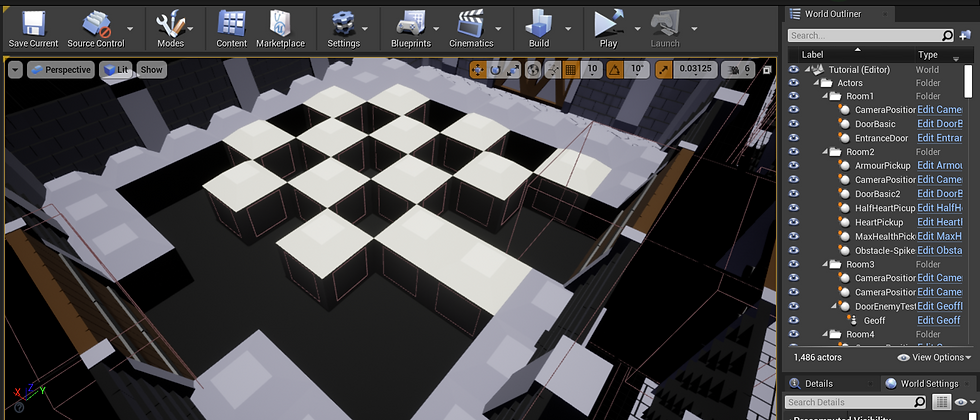
Now it's time to make the player try out a classic sliding puzzle, they need to use the slider assets I made to proceed to the next room.

Those are a bit lazy because they use line tracers, which activate when the push action is started, so it doesn't take as much power to push them, they also are usable on any map without any big problems (They also work nicely with a base button I made). They are less customizable, but you can still change their scales and checks.
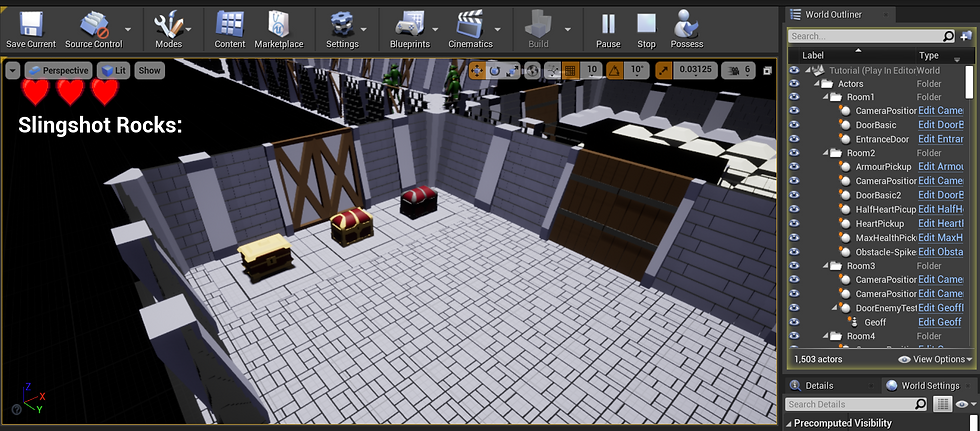
Up ahead there is a chest showcase. This room was made to show the player how the chest system actually works, let me explain:

Those three chests are actually the same actor copied three times with different variables checked. I will start from left to right: the fancy chest model is used for simple items (ex. heart/stone), the strong chest is used for more complex items (ex. 1UP) and the last is a custom chest, those adapt their model based on the complexity of the items and always replace the golden part with a silvery one.
The variables you can choose are the custom item (in case it has the IsCustom? check set to true) or if it has all kinds/just complex/just basic.

The last room has the player use a infinite rock generator that is used to break the custom breakable assets blocking the exit.
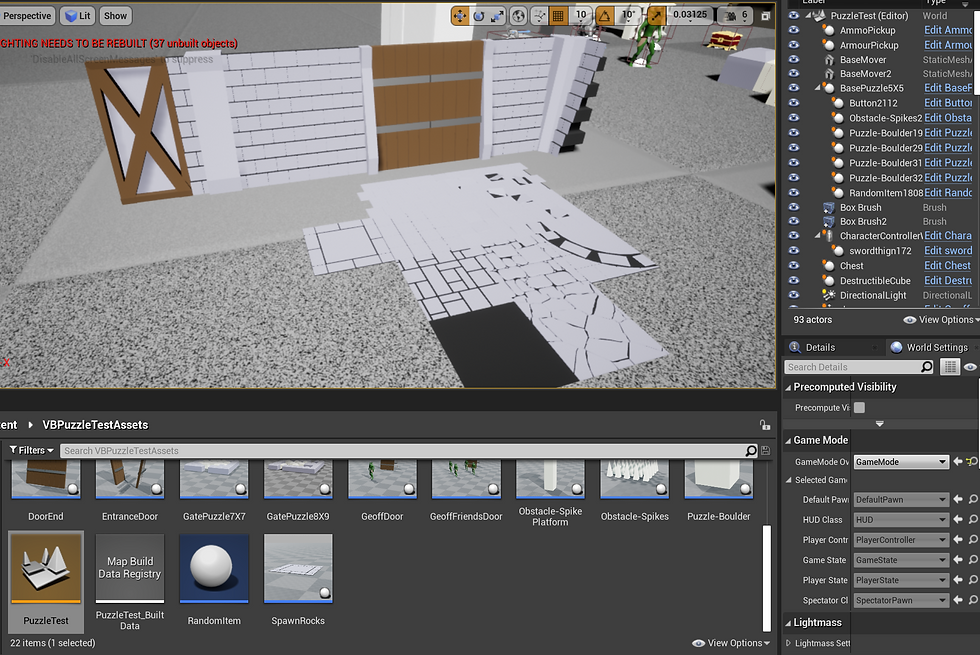
Here are all the tiles used in the dungeon setting, they are made to look similar to the old timey top-down looking sprites.
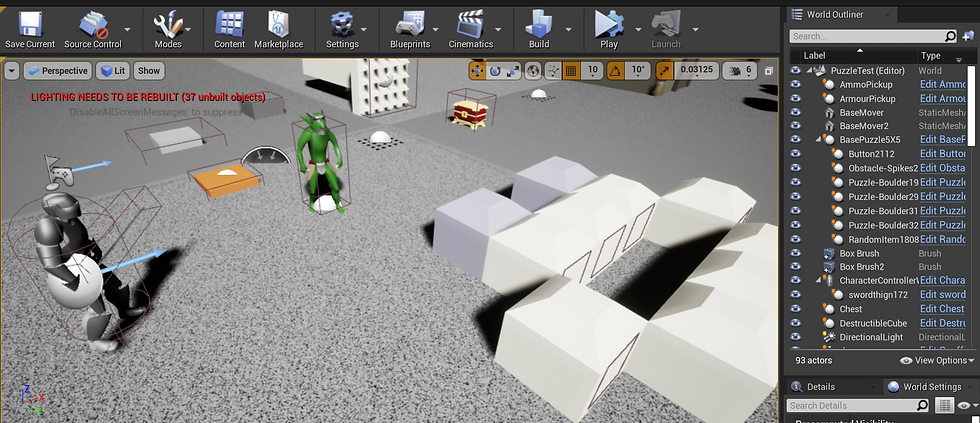
Here is a picture of the place-holder characters, a puzzle and some assets.




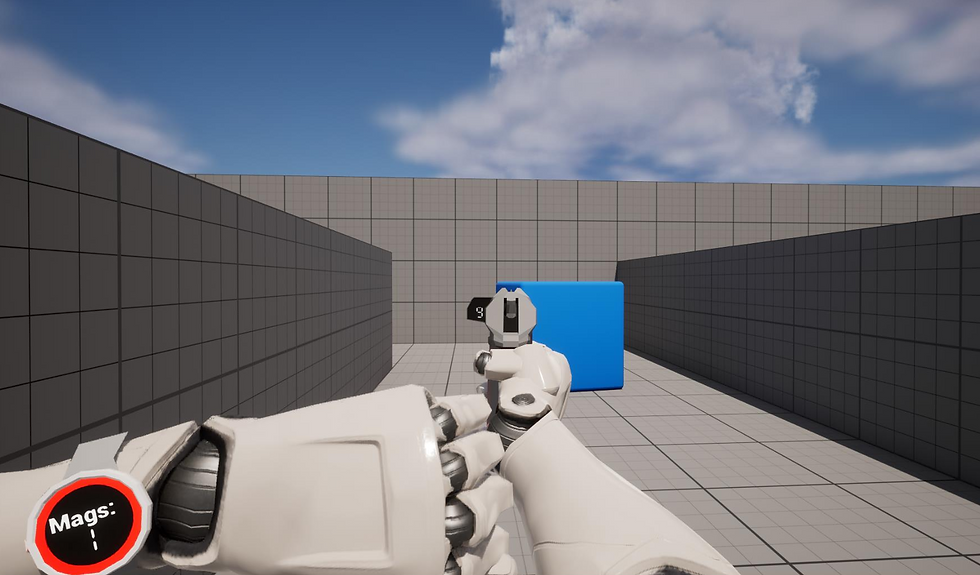
Comments